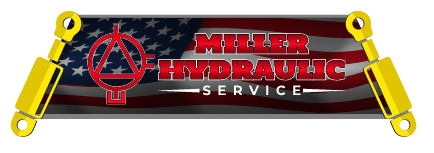4 Common Causes of Hydraulic System Problems

Hydraulic systems can develop a variety of problems. Some problems make a system fail completely. However, some might not be so obvious initially but could cause a dip in performance or lead to later breakdowns. What are some common hydraulic system problems you should look out for?
1. Hydraulic Fluid Problems
The fluid in your system needs to be in optimum condition for your hydraulics to work. Problems like fluid contamination affect performance. For example, air, water, or foreign particles can contaminate hydraulic fluids and prevent them from flowing smoothly.
Air in your system can lead to problems such as cavitation and aeration. If you have cavitation problems, then excess internal air can cause a series of tiny implosions that can damage seals and parts. Aeration typically happens if air comes into your fluid from outside your system. These bubbles can also do some damage as they move through the system.
While both cavitation and aeration involve excess air, they sometimes give you different warning signs. For example, if you have cavitation problems, then your system usually makes whining sounds, while aeration often sounds more like a bang or loud knock.
Incoming water from leaks or internal condensation can also cause problems. Over time, this moisture can damage internal parts. Typically, you can see the effects of water ingress in your fluid, causing it to turn a milky color if water has contaminated it.
You can also run into problems if your fluid levels aren't right or if you use the wrong fluid for the system's job. If you don't have enough fluid in your system, then you won't get the right flow rates, which can put stress on your system, causing it to overheat and break down. If you aren't using the right type of fluid for a job, then you won't get the right results.
2. Changes in Temperature
Hydraulic fluids need to operate at a specific temperature. Each fluid will have an optimum range within which it flows at the right rate and viscosity. If the temperature in your system is too high or too low, then your system can't work at optimum efficiency.
For example, if your hydraulic fluid gets too hot, then it will lose some of its viscosity. It will start to thin out. If a fluid is thinner than it should be, it might not be able to lubricate key parts. It might flow too fast to do its job efficiently.
On the other hand, cold can make hydraulic fluids thicker than they should be. They won't be able to flow easily through the system. The system might suffer from stress damage if it has to work harder to keep its fluids moving at an acceptable rate.
3. Internal or External Leaks
Your hydraulic system needs to be sealed tightly. Both internal and external leaks allow fluids to leak out of the system. They also bring in contaminants, such as air and dirt.
While external leaks are often easy to see, internal leaks are harder to spot. Often, you don't know you have an internal leak until your system develops a cavitation, aeration, or temperature-related problem. For example, if your system slows down, then a leak might have reduced your fluid levels.
4. System Wear or Damage
Sometimes, hydraulic systems suffer from wear or damage. Factors such as cavitation, aeration, or temperature fluctuations can cause these problems. Sometimes, a part, such as a seal, valve, motor, or pump, simply wears or breaks due to old age or a fault. While your system might still work, it might run slower or hotter than usual, or it might make unusual noises.
If your hydraulic system has a problem or if you haven't had it checked out for a long time, then contact
Miller Hydraulic Service, Inc. We offer a full range of services including testing and diagnostics, repairs, and rebuilds.





